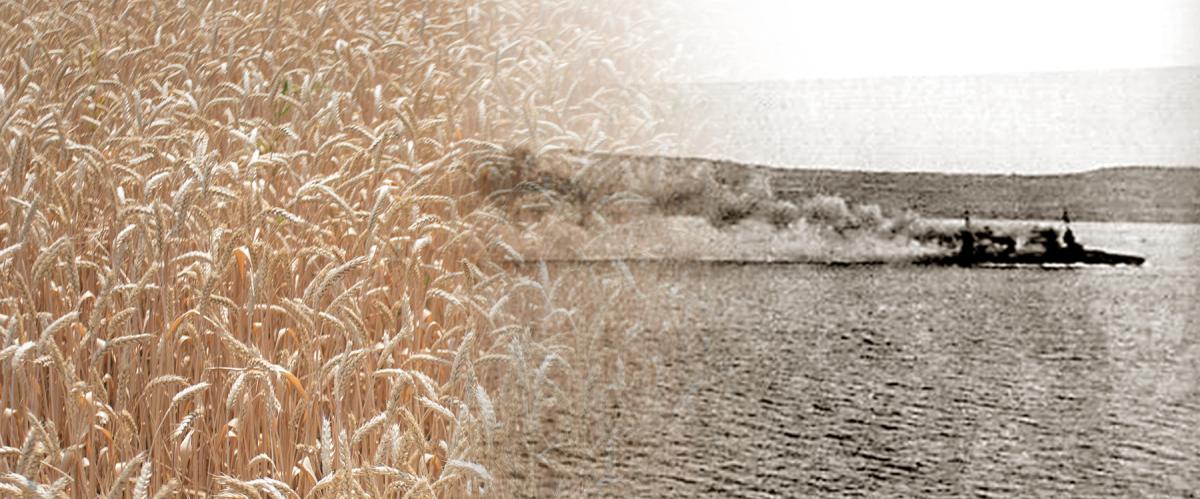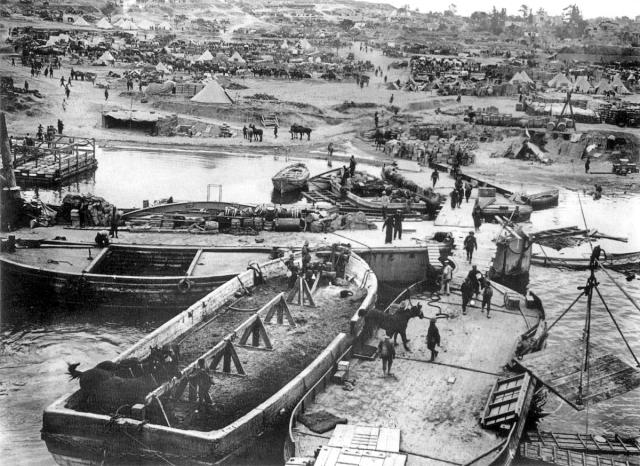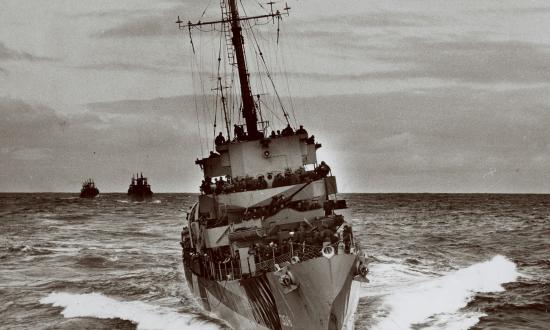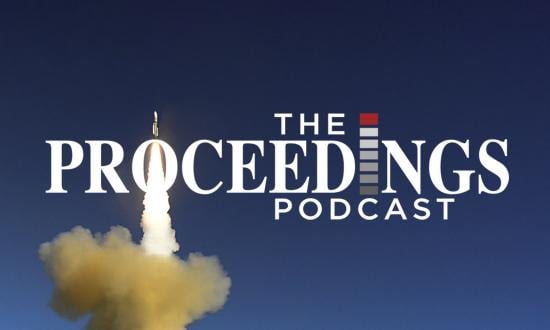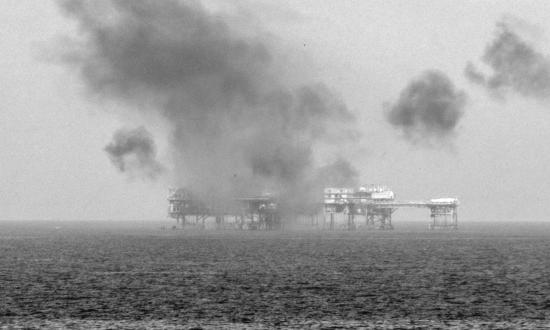The world faces a food crisis. Thanks to a series of shocks to the highly optimized global trading system, the price of wheat is spiraling upward. Transportation systems were already in disarray when war interrupted access to the Ukrainian breadbasket. Adverse weather has damaged the crops of several other major grain exporters. India, another major wheat producer, has embargoed the export of most of its harvest. As food prices rise, concerns mount over bread riots and the unpredictable political consequences that must follow. Worried leaders are eager to re-establish access to Ukrainian wheat.
We have seen this all before.
Although the word “unprecedented” has been tossed around to describe today’s food problem, it is, in fact, highly precedented. In 1914, Turkey blocked movement of Ukrainian wheat from Odessa by closing the Dardanelles Strait, the only waterway between the Black Sea and the Mediterranean. Today, the impediments are Russia’s Black Sea Fleet and mines laid by both sides. The net effects are the same, and the dynamics in play are similar, too. Understanding them will be important to helping the U.S. avoid following the disastrous precedent set by the United Kingdom in 1915.
Before World War I, the British government had carefully studied the problem of food security. Aware that the nation’s dependence on imported wheat constituted a potential Achilles’ heel, U.K. leaders concluded that within a globalized international economy, the real danger was not shortage of actual wheat so much as its becoming unaffordable. It was a system problem, not a supply problem, inherent in the highly optimized and interdependent nature of the global economy itself. Now as then, a massive shock to the system could cause the price of wheat to spiral upward.
While today the U.S. is largely self-sufficient in its food production, it can suffer from these supply shocks just the same. Americans aren’t likely to run out of food, but they will have to grapple with ever-rising prices, simply because food is a global commodity and disruptions abroad affect prices everywhere. The resulting political pressure on Washington could push U.S. leaders into making mistakes similar to those committed by their British counterparts over a century ago—with direct consequences for the U.S. Navy and Marine Corps.
During the closing months of 1914, a cascade of events caused exactly the spike in wheat prices that British leaders had long feared. Rather like the COVID-19 pandemic, the outbreak of World War I had deranged the international economy. A perfect storm in the global wheat market followed. One by one, the world’s seven major wheat exporters went offline: Turkey’s closing of the Dardanelles cut off Ukrainian and Romanian wheat; unseasonably heavy rains decimated the Argentine crop; in Australia, it was the year of the Great Drought; in North America, an unusually cold winter froze rails and waterways, paralyzing the movement to market of the U.S. and Canadian harvests, which turned out modest anyway. To cap it all off—and to British fury—the government of India embargoed wheat exports. The Indian crop wasn’t poor, but the allure of sky-high prices was sucking wheat out of the Indian heartland, sending prices in the bazaars skyrocketing, and causing domestic political turmoil.
In London, forecasters predicted a quadrupling of the global price of wheat. Fearing unrest among the poor, officials were desperate to lower the cost of bread. The two most obvious options were ideologically anathema in a Western capitalist society: price controls and rationing. Instead, leaders tried a subtler form of intervention: secretly purchasing wheat futures contracts while controlling the release of sensitive market information to manipulate expectations. (The money man for this effort was a young John Maynard Keynes.) But market forces proved too strong to control.
As a last resort, therefore, British ministers began to consider an option being pushed by the energetic young Navy minister, Winston Churchill: forcing the Dardanelles. Having initially set aside the scheme as Churchill’s latest harebrained operation, devoid of any compelling strategic intent, Prime Minister H. H. Asquith began to see in it the most compelling strategic intent of all—keeping his government in power. Not only could re-establishing access to Ukrainian wheat bring down the price of grain and forestall bread riots, but it could also enable Britain’s ally Russia to earn desperately needed foreign exchange and thus obviate the need for massive British loans. Compared with the heavy-handed and politically disquieting alternatives of price controls or rationing, it seemed altogether “easier and cheaper to storm the Dardanelles,” Keynes recorded the prime minister saying. Senior naval and military leaders who warned of the high risk of failure and potential fallout were ignored in favor of “can do” officers.
exports of grain. The operation turned into a deadly quagmire, and the solution turned out to be
much worse than the rising price of bread. Here, V Beach at Cape Helles, Gallipoli, on 6 May 1915.
(Australian War Memorial)
The result was an unmitigated disaster. One-quarter of the fleet that attacked the Dardanelles was sunk (by mines). An escalatory logic, driven by a desire to earn back sunk costs, took over. Britain attempted to retrieve the situation with an amphibious assault at Gallipoli. It was a humiliating defeat, which led directly to the fall of the Asquith government. To add insult to injury, shortly after the landings, the British government was horrified to learn there was no wheat in Odessa anyway—the trains used to move grain from the farms had all been commandeered by the Russian army before the harvest had been gathered.
There are two lessons here for the United States today.
First, doing nothing in the face of rising grain prices may not be an option, but the risks of action should be understood and acknowledged. Sending in the Navy, for escort duties or mine-sweeping, would be a protracted and high-risk operation with serious danger of escalation. It is risky to impose military solutions—or allow yourself to be left with only military solutions—to solve domestic political and economic problems. Things tend to get out of hand.
British leaders in 1915 underestimated the risk of military action and feared the electoral consequences of asking their people to make sacrifices in the form of living with inflation, accepting rationing, or having to pay for massive loans to Russia. Military action at the Dardanelles might have seemed like a way to avoid asking Britons to give something up, but it just transferred the sacrifices from taxpayers and consumers to the men who fought and died at Gallipoli.
No Western government today seems any keener to ask its own people to make sacrifices. And the upward trend in food prices seems likely to continue, as conditions in western Canada (one of the biggest wheat exporters in the world), where the wheat planting season is beginning, are suboptimal this year. Confirmation that the Canadian harvest will be smaller than expected, plus the approaching midterm elections in the United States, are bound to increase the pressure on the Biden Administration to do something.
The second lesson is that the United States should check before agreeing to support any operation premised on assertions that Ukrainian wheat is available for export from Odessa and more is on the way. It seems clear that some Ukrainian wheat is sitting in ports—but are the handling facilities working? Are the quays clear? And has the rail infrastructure, normally used to move wheat from farm to port, survived the Russian onslaught (which has targeted transportation networks)? The pump may be primed, but will the engine fire? The grain in ports is only one part of the supply chain—a concept we have heard a great deal about in other contexts, but very little about in this one. Perhaps it is better thought of as a conveyer belt stretching from farm to port. The point is that intervention is not simply a matter of entering the port, grabbing the wheat, and departing—end of story. The wheat must flow, that will take time, and time increases the risks.
12 percent of global corn exports, and nearly half of global sunflower oil exports. The war has
trapped these and other agricultural products in Ukraine, inflating global food prices. (Shutterstock)
The prospect that the United States will learn these lessons does not appear encouraging. On the one hand, U.S. military leaders show little interest in understanding the global economic forces that structure the strategic environment. That lack of interest prevents them from meeting politicians on the latter’s own terms and heightens their vulnerability to being steamrolled by civilians desperate for solutions to their political problems. On the other hand, it is unclear that civilian leaders grasp any better the dynamic interplay between political, economic, and strategic factors. For the past 20 years, they have consistently over relied on military action and underestimated the likely fallout. When is the last time the Commerce, Treasury, and Agriculture Departments met with senior U.S. Navy leaders to discuss commercial maritime flows, which manifestly concern them all? This ought to occur regularly; why does it not? It is as though the two sides of the civil-military relationship are each retreating to their corners and refusing to meet in the middle—where strategy, politics, and economics interact and determine the fate of billions.
The bottom line is this: as the price of food continues to rise this summer, so will pressure on the Biden Administration to deploy the U.S. Navy into the Black Sea—because the only way to move 20 million tons of wheat is by sea. Before doing so, the White House and Pentagon should consider the British lessons of Gallipoli and 1915. It could be that the costs of taking action would prove greater than the costs consumers would have to pay for their daily bread.



